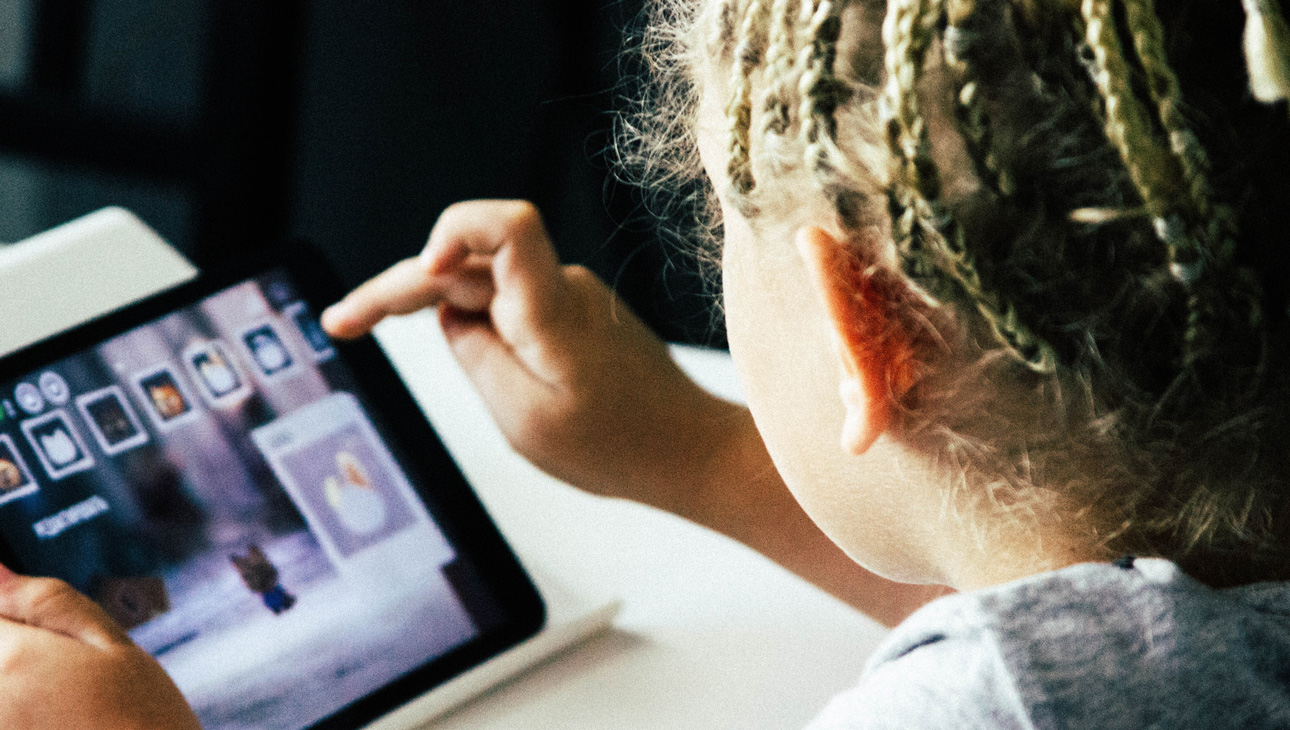
Screens play an increasingly large role in our lives today – whether it’s working on laptops and desktops, using a smartphone or tablet, watching television or playing computer games. But did you know that screens can also have a significant impact on your eyes?
A review in the Journal of Clinical Ophthalmology and Research covers a breadth of research into the known effects – including a study showing blink rates can decrease by up to half when focusing on a screen. Blinking renews and spreads the tear film on your eyes, helping to keep them hydrated and protected. As a result, prolonged exposure to screens can lead to symptoms such as:
When caused by screen time, these symptoms are often collectively referred to as computer vision syndrome (CVS), or ‘digital eye strain’. However, avoiding screens entirely may not be realistic or even possible depending on your lifestyle. If you use screens often, follow our tips to minimise their effect on your eyes.
Eye tests not only monitor any changes in your vision, they’re also vital for checking the general health of your eyes.
If you regularly use computers or screens, let your optometrist know. They’ll be able to give you tailored advice – whether that’s making sure your prescription is appropriate for extended periods of screen time, or recommending computer glasses to reduce strain on your eyes.
One of the best things you can do to reduce the impact of screen time is to give your eyes a rest – but this doesn’t need to take up a lot of time.
Use the ‘20-20-20’ rule: every 20 minutes, look at something 20 feet away for 20 seconds. Doing so gives your eyes relief from your screen and allows the surrounding muscles to relax.
If you spend a lot of time in front of the computer, consider applying an anti-glare filter to your screen. This can help reduce the amount of blue light emitted and minimise computer eye strain.
It’s also worth taking stock of the equipment you’re using. CRT (cathode ray tube) monitors are prone to screen flicker, which make your eyes work harder to process the information. An LCD (liquid crystal display) tends to result in less eye fatigue, as their displays are more consistent and less intense on the eyes.
Blue light emitted from smartphones and tablets can tire out your eyes and impact your sleep quality. Use a moderate brightness on your device – too low or high can put unnecessary stress on your eyes – and try to avoid using screens before bed time.
Some devices have built-in settings that soften the light and shift to ‘night mode’ as it gets dark. Refer to the manual or search online to see if this is available to you. If not, there are lots of free apps you can download on smartphone, tablet and even desktop to achieve the same effect.
If your eyes are struggling and feeling dry, a humidifier may help. By adding moisture to the air, your tear film evaporates slower and keeps your eyes more hydrated. Humidifiers are available in lots of different shapes and sizes – from desktop USB models to larger, freestanding versions.
When concentrating on screens, many of us don’t blink properly. ‘Incomplete blinking’ is where our eyes don’t fully close, meaning they don’t benefit from tear film replenishment. Blinking exercises are a great way to help relax your eye muscles and ensure your eyes stay comfortable and moist.
Eye drops and sprays can also provide fast relief for eyes affected by screen time. Try products that specifically address dry eyes, irritated eyes, or tired eyes and use according to pack instructions. If your symptoms persist, make an appointment with your doctor or optometrist to rule out any underlying issues.

Apps, websites and media can all make valuable contributions to children’s education and development, whether it’s learning words or completing homework. However, it’s important this screen time is regulated to reduce impact on children’s eyes.
Currently, there are no UK guidelines on how much screen time is appropriate for children. The American Academy of Paediatrics (AAP) recommends the following:
Children will look to their parents or guardians and follow their example. Using some of our tips in this article can help set a good precedent.
You may also want to stipulate ‘screen free’ time, such as at meal times or specific times of day. The Association of Optometrists also recommends plenty of outdoor play and exercise, as studies show it can help prevent the development of short-sightedness.
If a child is physically healthy, sleeping well, socially engaged and has hobbies that don’t require a screen, you may not need to drastically limit their exposure. Ultimately, it’s all about balance – and what works for you and your family may be different to others.
Modern life makes going completely screen-free quite a challenge. A ‘digital detox’ isn’t realistic for everyone, so it’s important to take small steps to keep your eyes healthy.
Attending sight tests, taking steps to reduce blue light and minimising device usage before bed are all effective ways to prioritise your eye health without sacrificing your lifestyle – just make sure you let your optician know if you notice any changes.
Find out why keeping your eyes in great condition doesn’t have to be difficult.
Everything you need to know about maintaining great eye health with contact lenses.
Read our advice for dealing with the colder months – from low temperatures to long nights.